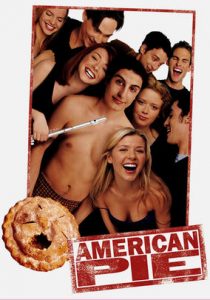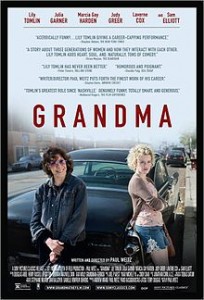American Pie-1999
Director Paul Weitz
Starring Jason Biggs, Alyson Hannigan
Scott’s Review #813
Reviewed September 23, 2018
Grade: B+
With each generation of film, there seems to be a gross-out comedy that speaks to a young, coming-of-age generation- of the mostly male and jock persuasion.
American Pie (1999) finishes the 1990s strongly with a raunchy story that feels fresh and genuinely funny with precarious situations facing the cast, specifically the protagonist and “everyman”, played by Jason Biggs.
The film is a teen sex comedy of the crudest nature yet engulfed with characters audiences like- not mean-spirited, but rather fun-loving and endearing.
An enormous box office hit at the time, the film was all the rage and brought tawdry new meaning to the Americana staples of apple pie and band camp.
Spawning several sequels throughout the next decade, the franchise successfully brought back the teen comedy genre with strong and highly recognizable characters.
American Pie also brought back the fun to R-rated films and put a nice cherry on top of a creative decade in cinema. The film is not high art, but what it aims to do, it does quite well.
Living a middle to upper-middle-class existence in the suburban USA (presumably Michigan), five high school seniors make a pact to lose their virginity by the time they graduate. Most of the group are nerdy, insecure, and sexually naive, the central character being Jim Levenstein (Biggs).
Most events are taken from his point of view and he is continually advised by his very nerdy father, Noah (Eugene Levy).
The setup is an age-old premise with lots of room for jokes and precarious situations in hilarious form. As Jim has the hots for a sexy foreign exchange student, Nadia, she is out of his league.
In a hilarious scene, a “warm apple pie” incident leads to a webcam setup attempt to watch Nadia change clothes. When events go amiss everyone gains access to the webcam link, and Nadia is sent back to Czechoslovakia in shame.
This leads to a new pursuit for Jim, in geeky band camp girl, Michelle (Alyson Hannigan). Surprisingly, they fall madly in love and have fantastic chemistry.
Some of the supporting characters add energy and sometimes hilarity. Jennifer Coolidge is great as the mother of Stifler (the jock of the group), who has eyes for younger men, specifically Finch.
As they finally consummate their relationship on a basement pool table, Stifler walks in at the worst time and faints in horror. These antics are genuine and fresh, with great acting by all principals.
Coolidge, Hannigan, and Levy are arguably the best secondary characters. Each, in a different way from the others, provides comic relief by crafting interesting nuances to the characters.
Levy, as Jim’s father, is well-meaning, yet bumbling. Every teen cringes at the thought of having a father like Noah, yet the pair share a close bond and a classic father-son relationship, so the character is therefore enamoring.
American Pie was successful at coining new pop-culture phrases such as “warm apple pie”, “milf”, and “this one time in band camp…” that the young generation of the time (myself included) enjoyed giggling over and repeating in glee.
The film set the tone for other similar genre films, but none of them lived up to the chemistry and the charm that American Pie had. This film was better than it ever should have been!
The turn-of-the-century version of Animal House, American Pie (1999) introduces a new generation of young people into the world of comedic, R-rated, raunchy fun. Films like this have been churned out by the numbers, but rarely any are as authentic as this film feels.
The franchise was able to sustain its popularity with well-written sequels, most notably American Pie 2 (2001), which developed the situations more, but the original is a fine blueprint for what good comedy can achieve.

